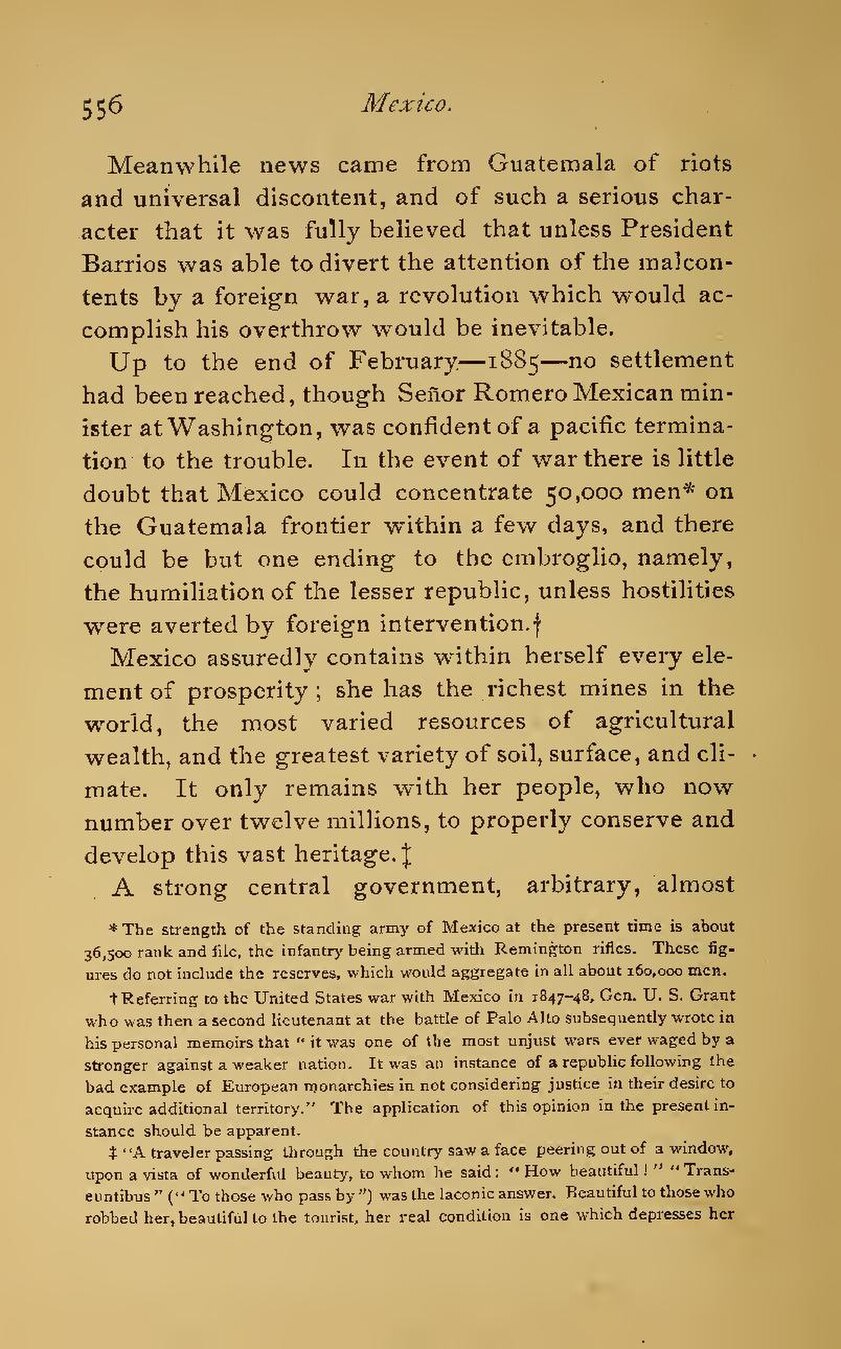Meanwhile news came from Guatemala of riots and universal discontent, and of such a serious character that it was fully believed that unless President Barrios was able to divert the attention of the malcontents by a foreign war, a revolution which would accomplish his overthrow would be inevitable.
Up to the end of February—1885—no settlement had been reached, though Señor Romero Mexican minister at Washington, was confident of a pacific termination to the trouble. In the event of war there is little doubt that Mexico could concentrate 50,000 men [1] on the Guatemala frontier within a few days, and there could be but one ending to the embroglio, namely, the humiliation of the lesser republic, unless hostilities were averted by foreign intervention.[2]
Mexico assuredly contains within herself every element of prosperity; she has the richest mines in the world, the most varied resources of agricultural wealth, and the greatest variety of soil, surface, and climate. It only remains with her people, who now number over twelve millions, to properly conserve and develop this vast heritage.[3]
A strong central government, arbitrary, almost
- ↑ *The strength of the standing army of Mexico at the present time is about 36,500 rank and file, the infantry being armed with Remington rifles. These figures do not include the reserves, which would aggregate in all about 160,000 men.
- ↑ Referring to the United States war with Mexico in 1847-48, Gen. U. S. Grant who was then a second lieutenant at the battle of Palo Alto subsequently wrote in his personal memoirs that "it was one of the most unjust wars ever waged by a stronger against a weaker nation. It was an instance of a republic following the bad example of European monarchies in not considering justice in their desire to acquire additional territory." The application of this opinion in the present instance should be apparent.
- ↑ "A traveler passing through the country saw a face peering out of a window, upon a vista of wonderful beauty, to whom he said: "How beautiful!" "Transeuntibus" ("To those who pass by") was the laconic answer. Beautiful to those who robbed her, beautiful to the tourist, her real condition is one which depresses her
